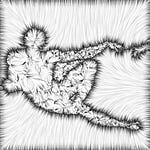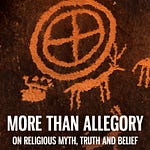In this episode I speak with Dan Ackerfeld, an Australian psychologist and writer of the Mind & Mythos Substack. Dan's work explores the intersection of psychology, mythology, and narrative, initially focusing on traditional psychological topics like personality theory and psychopathology before expanding into broader cultural and literary analysis. Our wide-ranging discussion delved into theories of consciousness, personality, mental illness, and the enduring power of religious and mythological narratives.
The conversation weaved through several key themes around how humans construct meaning and identity. We discussed the DSM's limitations in categorizing mental illness, cybernetic theories of personality, and how the self-memory system helps create coherent personal narratives. This led to deeper explorations of how myths and religious stories may contain essential truths about human psychological development and social organization. Dan offered thoughtful perspectives on Christianity's role as arguably history's most successful narrative framework, while acknowledging the inherent challenges of bureaucratization in religious institutions. The discussion concluded with reflections on early psychological development and the potential risks of children lacking meaningful mythological frameworks in the modern digital age.
Show notes:
Introduction of Dan's background as a psychologist and evolution of Mind and Mythos from purely psychological topics to broader cultural analysis
Discussion of DSM limitations and arbitrary diagnostic categories
Exploration of cybernetic theories of personality, including DeYoung's work on the Big Five
Analysis of the general factor of personality and its relationship to emotional intelligence
Examination of narrative emergence around 50,000 years ago and its connection to human consciousness
Deep dive into self-memory systems and how people construct coherent identities
Conversation about schizophrenia and rigid narrative structures
Analysis of violent themes in mythology and their relationship to psychological transformation
Discussion of Christianity as a powerful narrative framework and its role in social organization
Exploration of modern therapeutic approaches and their parallels with religious concepts
Consideration of Joseph Campbell's theories about critical periods of psychological imprinting
Concluding thoughts about the importance of meaningful narratives for child development
Preview of Dan's upcoming work on narrative psychology and plans for interactive essay clubs













